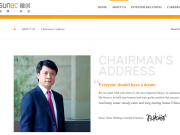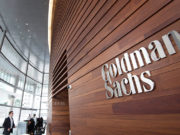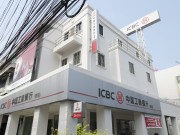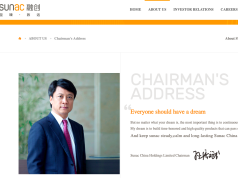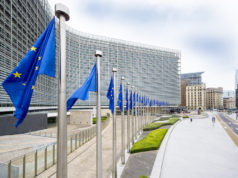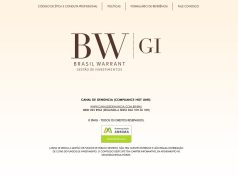Hong Kong Monetary Authority Report 2022: 155 Licensed Banks & $3.4 Trillion Banking Assets, $510 Billion Exchange Fund Generated -4.5% in 2022 & +4.5% Since 1994, Long-Term Portfolio +12.6% Since 2009, Economy in 2023 to Recover & Ride on Re-opening of Mainland China & Hong Kong
13th May 2023 | Hong Kong
Hong Kong central bank Hong Kong Monetary Authority (HKMA) has released the HKMA Annual Report 2022, providing an overview of Hong Kong monetary policies & accounts, banking industry, and outlook & priorities for 2023. In 2022, Hong Kong has a total of 155 licensed banks, $3.4 trillion banking assets, Hong Kong Exchange Fund with $510 billion AUM (Assets under Management) generating -4.5% in 2022 & +4.5% since 1994, and Hong Kong Long-Term Growth Portfolio IRR (Internal Rate of Return) of +12.6% annualised since 2009. Hong Kong economy in 2023 is forecast to recover from a low base, and ride on the re-opening of Mainland China & Hong Kong. Hong Kong USDHKD exchange rate ended 2022 at 7.808 (11/5/23: 7.83), and Hong Kong Base Rate (Interest Rate) ended 2022 at 4.75% (11/5/23: 5.5%). See below for key findings & summary | View HKMA Annual Report 2022 here
“ 155 Licensed Banks & $3.4 Trillion Banking Assets, $510 Billion Exchange Fund Generated -4.5% in 2022 & +4.5% Since 1994, Long-Term Portfolio +12.6% Since 2009, Economy in 2023 to Recover & Ride on Re-opening of Mainland China & Hong Kong “
Hong Kong Monetary Authority Report 2022

Hong Kong central bank Hong Kong Monetary Authority (HKMA) has released the HKMA Annual Report 2022, providing an overview of Hong Kong monetary policies & accounts, banking industry, and outlook & priorities for 2023.
Hong Kong Monetary Authority Report 2022 – Summary
Summary – Key Outlook
- 2022 – Hong Kong’s economy contracts, inflation remains moderate. Banking sector in Hong Kong continues to be resilient.
- 2023 – Economic growth for 2023 is expected to recover from a low base, riding on the re-opening of the Mainland and Hong Kong.
Summary – Key Priorities for 2023 & Beyond
- Wealth management businesses
- HKMA Enforcement
- Combating money laundering & terrorist financing
- Banking Sector Development
- Credit, liquidity & market risks
- Operational & technology risk
- Oversight of financial market infrastructures
- Implementation of Basel standards in Hong Kong – Capital standards
- Hong Kong as an International financial centre
- Hub for asset and wealth management
- Gateway to the Mainland and the global offshore renminbi business centre
- Hong Kong’s Treasury markets
- Over-the-counter derivatives market
- Innovation and technology adoption in bond markets
- Crypto-assets particularly stablecoins
- Sustainability
- Hong Kong as a fintech hub in Asia
- Developing financial leadership in Hong Kong
Key Data Summary:
Hong Kong Monetary & Banking Industry:
- 2022 USDHKD Exchange Rate – 7.808 (11/5/23: 7.83)
- 2022 Base Rate (Interest Rate) – 4.75% (11/5/23: 5.5%)
- Monetary Base – HKD 1.91 trillion ($244 billion)
- Licensed banks – 155
- Restricted licence banks – 15
- Deposit-taking companies – 12
- Approved money brokers – 37
- Global Systemically important banks (SIBs) Hosted in Hong Kong – All 30 SIBs
- Total Banking Assets – HKD 27 trillion ($3.45 trillion)
- Capital adequacy ratio – 20.1%
- Loan-to-deposit ratio – 68.5%
- Average loan-to-value ratio – 57%
- Average debt servicing ratio – 39%
- Loan Growth – Decrease 3%
HKMA Exchange Fund
- Exchange Fund Assets: HKD 4 trillion ($510 billion)
- Exchange Fund Investment Income Return: -4.5%
- Exchange Fund Investment Income Return (Since 1994): +4.5% Annualised
- Exchange Fund Investment Income: HKD 205 billion net loss ($26 billion)
- Long-Term Growth Portfolio Market Value: HKD 484 billion ($61.7 billion)
- Long-Term Growth Portfolio IRR (Since 2009): +12.6% Annualised
2022 Key International Financial Data
- Established Limited Partnership Funds – 577
- RMB Deposits – RMB 981.7 billion ($141 billion)
- Hong Kong Share of RMB SWIFT payments globally – More than 70%
- RMB daily turnover – RMB 1.65 trillion ($237 billion)
- HKD daily turnover – HKD 928 billion ($118 billion)
- Asian international bond issuance – $103 billion
- Outstanding RMB loans – RMB 191 billion ($27.5 billion)
- Offshore RMB bond issuance – RMB 143 billion ($20.6 billion)
- Asian international green & sustainable bond issuance – $27.8 billion
- Average daily turnover Northbound Bond Connect – RMB 32.2 billion ($4.6 billion)
Hong Kong Monetary Authority Report 2022
1) HKMA 2022 Review
Economic & Financial Environment
- 2022 Hong Kong’s economy contracts, inflation remains moderate. Banking sector in Hong Kong continues to be resilient
- 2023 Economic growth for 2023 is expected to recover from a low base, riding on the re-opening of the Mainland and Hong Kong.
Monetary Stability
- Tightening of the US monetary policy, the Hong Kong dollar softened.
- Hong Kong dollar exchange and money markets continue to operate in a smooth and orderly manner. Strength and resilience of the Linked Exchange Rate System.
Reserves Management
- Exchange Fund records an overall negative investment return of 4.5%, relatively mild as compared to the performance of the majority of multi-asset funds in the market.
- Continues efforts in propelling responsible investments and asset diversification
- Long-Term Growth Portfolio records an annualised internal rate of return of 12.6% since its inception in 2009.
Banking Stability
- HKMA steps up supervision of banks’ credit and market risk management amid heightened volatilities in the financial markets.
- Works closely with banks to enhance their operational and cyber resilience in light of escalating cyber threats and accelerating digital transformation in the banking sector.
- Consumer protection measures are implemented in respect of “Buy Now, Pay Later” products and additional payment arrangement for property refinancing
- HKMA works with fellow regulators on a regulatory framework for virtual assets, issues guidance on investment products distribution and introduces a new regulatory regime on trust business.
- Credit Reference Platform under the Multiple Credit Reference Agencies Model for consumer credit data launched.
- HKMA continues to work with banks to strengthen Hong Kong’s anti-money laundering and counter-financing of terrorism (AML/CFT) ecosystem and enhance the response to scams.
- Promote the use of data and technology through the AML Regtech Lab series while accelerating the adoption of supervisory technology in the HKMA’s AML work.
- HKMA makes good progress on implementing international supervisory standards locally, including those on capital adequacy and disclosure.
- HKMA also works with the banking industry to build a sustainable pipeline of future talents and to upskill practitioners.
- To ensure a credible resolution regime, HKMA develops a new resolution standard, conducts a regional crisis simulation exercise and achieves a key milestone where a new layer of loss-absorbing capacity resources is built up at all domestic systemically important banks.
International Financial Centre
- Success of the Global Financial Leaders’ Investment Summit solidifies Hong Kong’s status as an international financial centre and creates positive ripple effects.
- Currency Swap Agreement between the People’s Bank of China and the HKMA is enhanced, which further strengthened Hong Kong’s role as the global offshore renminbi business hub.
- HKMA also works with fellow regulators and stakeholders on the launch of Swap Connect and the Dual Counter Market Making regime for trading renminbi- denominated stocks in Hong Kong.
- Develop the Central Moneymarkets Unit into a major international central securities depository in Asia.
- Strengthening the competitiveness of Hong Kong’s financial platform, notable progress is made in areas including bond issuance, asset and wealth management, corporate treasury centres, and green and sustainable finance.
- HKMA also continues to push forward the “Fintech 2025” strategy to promote the adoption of fintech by the financial sector and bolster Hong Kong’s position as a fintech hub. The Faster Payment System sees steady growth in adoption along with enhanced functionalities.
Corporate Functions
- HKMA maintains effective communication with the community and the market through different channels to promote public understanding about its policies and operations.
- HKMA conscientiously builds an agile and sustainable workforce, institutes rigorous financial discipline and upgrades information technology capabilities to adapt to changes and ensure effective implementation of its policies and initiatives.
2) HKMA Key Data
2022 Key Monetary Data
- USDHKD Exchange Rate – 7.808 (11/5/23: 7.83)
- Base Rate (Interest Rate) – 4.75% (11/5/23: 5.5%)
- Backing Ratio – 110.1%
- Monetary Base – HKD 1.91 trillion ($244 billion)
- Aggregate Balance (before discount window) – HKD 96.3 billion ($12 billion)
2022 HKMA Reserves Management Data
- Exchange Fund Assets: HKD 4 trillion ($510 billion)
- Exchange Fund Investment Income Return: -4.5%
- Exchange Fund Investment Income Return (Since 1994): +4.5% Annualised
- Exchange Fund Investment Income: HKD 205 billion net loss ($26 billion)
- Long-Term Growth Portfolio Market Value: HKD 484 billion ($61.7 billion)
- Long-Term Growth Portfolio IRR (Since 2009): +12.6% Annualised
2022 Key Banking Industry Data
- Licensed banks – 155
- Restricted licence banks – 15
- Deposit-taking companies – 12
- Approved money brokers – 37
- Off-site supervisory reviews – 183
- On-site supervisory examinations – 112
- Thematic supervisory reviews – 579
- Global Systemically important banks (SIBs) Hosted in Hong Kong – All 30 SIBs
- Loss-absorbing capacity of D-SIBs (Domestic Systemically important banks) – 25.4%
2022 Key Banking Asset Data
- Total Assets – HKD 27 trillion ($3.45 trillion)
- Capital adequacy ratio – 20.1%
- Liquidity Coverage Ratio – 162.3%
- Liquidity Maintenance Ratio – 63.2%
- Classified loan ratio – 1.38%
- Loan-to-deposit ratio – 68.5%
- Average loan-to-value ratio – 57%
- Average debt servicing ratio – 39%
- Loan Growth – Decrease 3%
2022 Key International Financial Data
- Established Limited Partnership Funds – 577
- RMB Deposits – RMB 981.7 billion ($141 billion)
- Hong Kong Share of RMB SWIFT payments globally – More than 70%
- RMB daily turnover – RMB 1.65 trillion ($237 billion)
- HKD daily turnover – HKD 928 billion ($118 billion)
- Asian international bond issuance – $103 billion
- Outstanding RMB loans – RMB 191 billion ($27.5 billion)
- Offshore RMB bond issuance – RMB 143 billion ($20.6 billion)
- Asian international green & sustainable bond issuance – $27.8 billion
- Average daily turnover Northbound Bond Connect – RMB 32.2 billion ($4.6 billion)
3) Priorities for 2023 & Beyond
HKMA Outlook
- Global economic outlook remains subject to significant uncertainties.
- Uncertainties on the interest rate path in the US and the emergence of banking stress in advanced economies may pose potential downside risks to the growth outlook for major advanced economies.
- Geopolitical risks are likely to continue to weigh on global trade and spark volatility in global financial markets from time to time.
- Business environment facing the banking sector is expected to remain challenging in 2023
- Rapid technological advances and digitalisation are presenting both opportunities and challenges to the banking sector.
Wealth management businesses
- Step up both on-site examinations and off-site surveillance of AIs’ (authorized institutions) conduct in relation to wealth management and the selling of securities, Mandatory Provident Fund (MPF) and other investment and insurance products.
- Focus in 2023 will be on the Cross-boundary Wealth Management Connect (Cross-boundary WMC) Scheme, digital distribution and advisory platforms, virtual assets, environmental, social and governance (ESG) investment products and long term insurance products
Enforcement
- Monitor AIs’ (authorized institutions) adherence to the updated statutory guideline on Complaints Handling and Redress, and that they are treating customers fairly and responsibly with regard to the purchase and use of banking products and services.
- HKMA will develop a new management information system in 2023. This will enable the HKMA to more efficiently and effectively carry out assessments, investigations and other follow-up actions relating to issues arising from on-site examinations and offsite reviews, banking complaints, whistle-blowing, and banks’ self-reporting under various statutory regimes relevant to AIs and stored value facility (SVF) licensees.
- HKMA will publish Complaints Watch on a half-yearly basis to highlight the latest complaint trends, emerging topical issues, and areas that AIs and members of the public should be alert to, with the aim of educating consumers and promoting good standards of conduct and prudent business practices among AIs.
- Collaboration with other local financial regulators will remain a key priority in order to achieve effective and well co-ordinated enforcement outcomes.
Combating money laundering & terrorist financing
- Prioritise regulatory updates, strengthen the collaborative eco-system response to money laundering and terrorist financing (ML/TF) risks, and further efforts in anti-money laundering (AML) supervisory technology (Suptech) and regulatory technology (Regtech).
- Amendments will be made to the HKMA’s Guideline on Anti-Money Laundering and Counter-Financing of Terrorism (AML/CFT), complemented by specific guidance on a proportionate approach to the Politically Exposed Person (PEP) requirements
- Information-sharing will be scaled up by broadening the scope of existing public-private partnerships and supporting the launch of bank-to-bank information sharing.
- Focus further on Regtech adoption (including data analytics) through AML Regtech Labs and other AML/CFT Regtech initiatives, and work towards developing a macro analytics capability to complement its data-driven AML/CFT supervision.
Banking Sector Development
- Consumer protection – the HKMA will stay abreast of developments in innovative banking services and popular banking products (such as personal credit products), and provide guidance to the banking industry as appropriate. Participate actively in international efforts on financial consumer protection, focusing on innovative products and the surge in scams and frauds on the back of increasing use of digitalised banking channels.
- Deposit Protection Scheme – The Hong Kong Deposit Protection Board (the Board) plans to conduct a public consultation in 2023 on a package of proposed enhancements to the DPS.
- Technology adoption – HKMA is developing a roadmap of initiatives to further promote the adoption of fintech in the banking sector, particularly in the business areas of Wealthtech, Insurtech and Greentech, as well as the technology types of Artificial Intelligence and Distributed Ledger Technology.
Credit, liquidity & market risks
- HKMA will continue to closely monitor the asset quality of authorized institutions (AIs), focusing on their classification and provisioning practices and their management of vulnerable borrowers.
- Enhance its surveillance system and take proactive steps to ensure that the overall credit risk level of the banking sector remains manageable.
- Jeep track of the operating environment of corporates and maintain close dialogue with the banking and commercial sectors to prepare for an eventual exit of the Pre-approved Principal Payment Holiday Scheme, while ensuring customers facing temporary difficulty will continue to get appropriate credit support.
- Step up its supervision of AIs’ (authorized institutions) liquidity and market risk management in 2023
Operational & technology risk
- Enhance the operational and cyber resilience of the banking sector as banks increasingly adopt technologies in their operations.
- Following up with AIs (authorized institutions) on issues revealed by the assessments made under the Cyber Resilience Assessment Framework 2.0, and by monitoring AIs’ implementation of the secure tertiary data backup arrangement.
- With accelerating digitalisation, stepping up supervision of banks’ third-party risk management and strengthening the banking sector’s data governance capabilities.
Oversight of financial market infrastructures
- Promote the safety and efficiency of the financial market infrastructures (FMIs) under its oversight in accordance with the Payment Systems and Stored Value Facilities Ordinance (PSSVFO), the Principles for Financial Market Infrastructures (PFMI), and the various guidance issued by the Committee on Payments and Market Infrastructures (CPMI), by conducting assessments of the systems against the latest international standards as appropriate.
- HKMA will participate in the CPMI-IOSCO PFMI implementation monitoring and assessment exercise.
- Take part in the work of international standard-setting bodies, and review and strengthen its oversight requirements to reflect international practices or in response to market and technology developments.
- HKMA will work with relevant authorities to further strengthen co-operative oversight arrangements where appropriate.
Implementation of Basel standards in Hong Kong – Capital standards
- Enhance the capital framework through implementing the standards published by the Basel Committee on Banking Supervision (Basel Committee)
- The revised capital standards set out in the Basel III. The amendments are expected to be introduced into the Legislative Council for negative vetting within the same year, and become effective as minimum requirements no earlier than 1 January 2024.
- The Prudential treatment of cryptoasset exposures of December 2022. Local implementation of the standard is planned for 1 January 2025 in accordance with the timeline set by the Basel Committee, and the HKMA plans to consult the industry on its related proposals in 2023.
4) Hong Kong as an International financial centre
Hub for asset and wealth management – proactively reach out to the asset and wealth management industry to promote Hong Kong as an international financial centre, with a view to attracting more capital, talent, and financing and investment activities to Hong Kong.
Gateway to the Mainland and the global offshore renminbi business centre – Continue to collaborate with Mainland authorities and the financial industry to further develop Hong Kong’s offshore renminbi market. This will involve deepening market liquidity, promoting a greater diversity of renminbi products, and improving Hong Kong’s financial infrastructure, with a view to reinforcing Hong Kong’s position as a global offshore renminbi business hub. Top priorities include launching Swap Connect and the Dual Counter Market Making regime to facilitate the trading of Hong Kong-listed stocks in renminbi, as well as enhancing various Mainland-Hong Kong Connect schemes including the Cross-boundary WMC, Stock Connect, and Bond Connect.
Hong Kong’s Treasury markets – The HKMA works closely with the Treasury Markets Association and engages market participants to support the enhancement of the professionalism and competitiveness of Hong Kong’s treasury markets, particularly in relation to financial benchmarks and the promotion of the Foreign Exchange Global Code.
Over-the-counter derivatives market – An over-the-counter (OTC) derivatives regime is being introduced in phases in Hong Kong. In close collaboration with the SFC, the HKMA will further develop and refine the implementation rules to implement an effective regulatory regime for the OTC derivatives market.
Innovation and technology adoption in bond markets – bond market is at a nascent stage, tokenisation holds the potential to bring about cost and efficiency gains, enhance liquidity, and broaden investor participation in the bond market. With the experience gained from the pilot issuance of the tokenised Government green bond in February 2023, the HKMA and the Government will review the potential and prospects of tokenised bond issuance in Hong Kong and explore the need for policy initiatives to foster the wider adoption of distributed ledger technology in Hong Kong’s capital markets.
Crypto-assets particularly stablecoins – HKMA will continue its work on developing an agile and risk-based regulatory regime for stablecoins to address the monetary and financial stability risks they may pose, while at the same time supporting financial innovation and market development.
Sustainability – Combatting climate change and promoting sustainability require consistent and robust effort. The HKMA will continue to work with like-minded peers and international organisations on this global agenda. In 2023, the HKMA will step up its efforts in promoting a more sustainable financial sector in Hong Kong while carrying out its duties as a responsible investor and sustainable organisation. Details on our work and priorities can be found in the Sustainability Report 2022.
Hong Kong as a fintech hub in Asia – To promote the development and use of technology in the financial sector, the HKMA will continue to take forward the initiatives under the “Fintech 2025” strategy. It will focus on facilitating banks’ digitalisation and adoption of Regtech, strengthening its work on both wholesale and retail Central Bank Digital Currencies, further developing next-generation data infrastructure for more efficient financial intermediation, and deepening the fintech talent pool.
Developing financial leadership in Hong Kong – In 2023, the Hong Kong Academy of Finance (AoF) will further develop its Leadership Development Programme, with a view to fostering leadership and broadening the global and inter-disciplinary perspectives of members and industry participants. Following the success of its new flagship Financial Leaders Programme in 2022, the AoF will continue to run the Programme to nurture senior financial leaders to sustain and propel the long-term development of Hong Kong’s financial industry. Programme activities for the second cohort will run from April to December 2023.
Hong Kong Chief Executive Statement
HKMA Chief Executive Eddie Yue
2022 was a year of making headway against headwinds.
We had a dim start to 2022, with the Omicron COVID-19 variant still weighing on global growth, while inflationary pressure continued to build. The subsequent outbreak of conflict between Russia and Ukraine spurred inflationary pressures, leading to the frontloading of major central banks’ monetary tightening, amplifying volatility in global financial markets and heightening the risk of slower economic growth. Here at home, the fierce and rapid spread of the fifth wave of COVID-19 dealt a further blow to the economy, and the negative publicity surrounding the COVID-related restrictions led to misconceptions threatening the reputation of Hong Kong as an international financial centre (IFC).
For the year as a whole, Hong Kong’s real gross domestic product shrank by 3.5%.
Despite such headwinds, we continued to safeguard the monetary and financial stability of Hong Kong and press ahead with developmental initiatives in key strategic areas to further strengthen Hong Kong’s position as an IFC. After three years of travel restrictions, we have successfully shown the world, and let visitors experience for themselves, that Hong Kong is back! Nothing speaks louder than the overwhelming response we received for the Global Financial Leaders’ Investment Summit last November, with global financial leaders travelling from all over the world to attend the Summit in person.
Looking ahead, the external environment is still full of unprecedented uncertainties. Although risks appear tilted to the downside, the re-opening of the Mainland economy will bring renewed momentum to the Hong Kong economy and the region more broadly. At the HKMA, we will continue to fulfil our mandate of safeguarding monetary and banking stability in Hong Kong, and actively pursue developmental opportunities to showcase and strengthen our competitiveness as an IFC. We also remain committed to contributing to a more climate resilient and sustainable world. This year, we are publishing a standalone Sustainability Report 2022 together with the Annual Report 2022 to cover in more detail our initiatives in strengthening Hong Kong’s role as a green and sustainable finance hub, as well as our own efforts in being a responsible investor and a sustainable organisation.
Monetary and financial systems: resilience remains intact
Since its establishment in 1983, the Linked Exchange Rate System (LERS) has been through many economic cycles and weathered a variety of external shocks. The year 2022 was yet another testimony to the resilience of the LERS. Amid aggressive monetary tightening by the US Federal Reserve (Fed), the weak-side Convertibility Undertaking (CU) was triggered 41 times between May and November 2022, and in accordance with the established mechanism, the HKMA bought a total of HK$242.1 billion from the market in an orderly and transparent manner. During this time, the Hong Kong dollar exchange and money markets continued to function smoothly, reflecting the robustness of the LERS.
This confidence in the LERS is a result of the solid foundation formed over the years. As reiterated in the International Monetary Fund’s External Sector Report 2022, the credibility of the LERS is ensured by factors including a transparent set of rules, ample foreign exchange reserves, a prudent fiscal framework, robust financial regulation and supervision, and a flexible economy.
We firmly believe that in addition to its robust mechanism, confidence in the LERS is supported by our proactive communications work in helping the public understand our systems as well as effective surveillance and contingency planning on all fronts. Our social media campaign on the LERS mechanism certainly helped maintain strong confidence in the LERS amid multiple triggering of the weak-side CU during the year. Within the HKMA, we have stepped up our market surveillance by employing data analytics to enable timely responses to emerging market issues.
Despite the macro challenges and heightened credit risk, Hong Kong’s banking system remained stable throughout the year, with strong capital and liquidity positions. As at end-2022, the consolidated total capital ratio of local banks stood at 20.1%, well above the international minimum requirement of 8%. The Liquidity Coverage Ratio of large banks edged up to 162.3% as of the fourth quarter of 2022, comfortably above the statutory minimum requirement of 100%. While the asset quality of banks deteriorated modestly amid the challenging credit landscape, with the classified loan ratio rising to 1.38% as at end-2022, this level remains healthy and below the long-run historical average of 1.8% since 2000.
Banking sector: robustness underpinned by effective supervision
Three years into the pandemic, and amid a multitude of increased challenges including intensified geopolitical tensions and monetary tightening by major central banks, the Hong Kong banking sector remained resilient while continuing its critical role in supporting the economy. Such robustness is underpinned by strong risk management practices and effective supervision over the years.
A major supervisory challenge in the past year was to ensure the banking sector continued to provide needed relief to customers in the wake of the fifth wave of COVID-19 infections and lingering uncertainties surrounding the economy, while at the same time maintaining sound credit risk management. The Pre-approved Principal Payment Holiday Scheme was further extended, but with the introduction of an added voluntary partial repayment option that allowed borrowers to repay part of the principal, helping customers prepare for an eventual resumption of normal repayment.
Another main supervisory effort in 2022 was increased surveillance of banks’ market and liquidity risk exposures, in light of the heightened market volatilities brought about by the aggressive tightening of monetary policy amongst the major economies. We carried out in-depth assessment of the likely impacts of synchronised monetary tightening on banks and introduced new scenarios into stress tests to assess banks’ resilience to cope with prolonged liquidity stress.
At the same time, we continued to take forward-looking action to promote effective risk management in several areas. On operational and cyber resilience, we provided guidance to support banks in developing an integrated and holistic framework to become operationally resilient, and we also provided detailed supervisory guidance on specific areas of banking operations, such as the use of cloud computing in light of growing cloud adoption. Meanwhile, we stepped up efforts in tackling phishing scams, as well as consumer and investor protection more broadly amid increasing digitalisation.
While working to maintain the resilience of the banking sector, we also endeavour to promote financial inclusion and enhance access to banking services. Banks have responded positively to our call for the provision of basic banking services, and have set up new branch and self-service facilities at large-scale public housing estates in new development areas. In view of the difficulty faced by many customers in Hong Kong in accessing their Mainland accounts due to COVID-related travel restrictions, we worked closely with the relevant parties to facilitate reactivation of about half a million Mainland bank accounts without the need for the affected account holders to visit the Mainland in person.
Another important strategic area for the continued development of the banking sector is capacity building. The banking sector continued to have strong demand for talented professionals to cater for business expansion. Building on its talent development strategy, “Connecting Talent to the Future”, the HKMA implemented a number of initiatives in the past year to help attract, develop and retain talent for the banking sector, focusing on upskilling and reskilling the existing workforce, and grooming the younger generation to build a sustainable pipeline of future talent.
International financial centre: Hong Kong is back!
In 2022, we devoted substantial effort to restoring Hong Kong to the centre stage after the prolonged period of COVID- related travel restrictions. The Global Financial Leaders’ Investment Summit in November brought over 200 international and regional leaders from global financial institutions to Hong Kong in person, and attracted attention and enthusiasm from around the world. The success of the Summit — despite taking place amid the first No. 8 typhoon signal in November in 50 years — sent a powerful message to the world that Hong Kong is back, stronger and better than ever. We are happy to see that the Summit has created positive ripple effects and many global financial institutions and international organisations are now hosting or planning to host their events in Hong Kong.
In addition to bringing people back to Hong Kong, recognising the power of face-to-face connection, we at the HKMA, myself included, have been taking every opportunity to physically represent Hong Kong at key international meetings. This enables us to make active contributions to global policy discussions and, riding on the occasion presented by these overseas visits, to meet with the group management of global financial institutions to promote Hong Kong and update them on Hong Kong’s robust financial system and the opportunities it can provide under “one country, two systems”.
To make sure Hong Kong stays competitive as an IFC, we continued to push boundaries for market development across our key strategic focus areas of fintech, Mainland opportunities and green and sustainable finance. We also further enhanced our financial platform to provide leading services to attract more businesses to Hong Kong. For details of our efforts relating to green and sustainable finance, readers may refer to the Sustainability Report 2022.
Fintech
Building on the “Fintech 2025” strategy unveiled in June 2021, we made notable progress across the five focus areas under this strategy during 2022.
With “All banks go fintech”, we achieved positive results with extensive and growing adoption of fintech by the Hong Kong banking sector across different business areas and technology types, according to the findings of the Tech Baseline Assessment. It is encouraging to see that our work since 2017 to progressively promote and support digitalisation has been well received by banks and continues to bear fruit.
We will continue to closely engage with the industry to further promote developments in selected fintech business areas and technology types based on the results of the Assessment.
Important milestones were reached during the year on our Central Bank Digital Currencies (CBDCs) journey. The Multiple CBDC Bridge (mBridge) project entered the pilot phase and is among the first of its kind to successfully settle real-value, cross-border transactions on behalf of corporates. On the retail front, technical testing of the cross-boundary use of the e-CNY has entered the second phase, centering on the use of the FPS to top up the e-CNY wallet. For e-HKD, we have designed a three-rail approach to pave the way for possible future issuance and launched a Rail 2 Pilot to invite industry to dive into use cases.
Fintech relies on data to unlock its full potential, and the launch of Commercial Data Interchange (CDI) in October is a big step forward in this respect. CDI provides a consent- based common data infrastructure that enables financial institutions to more easily access enterprises’ commercial data, and in turn, facilitates easier access to finance by corporates especially small and medium-sized enterprises (SMEs). As at end-2022, CDI had facilitated over 1,000 SME loans amounting to more than HK$1.9 billion.
Last but not least, while embracing the benefits of financial innovation, we are always cognisant of the need to monitor and tackle possible risks. We are closely following developments in the virtual asset space and contributing to international discussions on relevant regulatory issues. Having considered the feedback from public consultation and international standards, we will adopt a risk-based, “same risk, same regulation” approach1 in developing a regulatory regime for stablecoins and in scoping in stablecoin structures for regulation under the proposed regime. As a priority, we will start with regulating stablecoins that purport to reference to one or more fiat currencies, given the higher and more imminent monetary and financial stability risks that they may pose. We believe that with the right guardrails in place, the industry can explore the potential of digital finance in a safe and healthy manner.
Technology is re-shaping our future. We and the banking sector are actively gearing up for this “new normal”. We are confident that this fintech ecosystem we are building will help us unlock the full potential of fintech and contribute to enhancing our competitiveness as an IFC.
Mainland opportunities
Hong Kong’s unique edge in offshore renminbi business has been a key feature of Hong Kong as an IFC. In the past year, we have made significant progress in the continued development of the offshore renminbi market in Hong
Kong. First, in July, the People’s Bank of China and the HKMA enhanced the currency swap agreement to a long-standing arrangement with expanded size, differentiating Hong Kong from other jurisdictions in terms of being the only one whose arrangement is not subject to renewal, and also having the largest swap size. This has reinforced Hong Kong’s firm foothold as a renminbi hub and will facilitate the expansion of market activities and products. On the back of this, we enhanced our Renminbi Liquidity Facility, which will further support market liquidity and enable market players to offer a more comprehensive range of products and services.
Apart from enhancing offshore renminbi liquidity, we have further enhanced our mutual market access schemes with the Mainland, which will help facilitate the development of more diverse renminbi products in Hong Kong. Swap Connect, announced in July 2022, will expand the financial co-operation between Hong Kong and the Mainland into the derivatives market, namely interest rate swap markets, creating synergy with Bond Connect to facilitate global investors’ management of interest rate risks for their bond investment on the Mainland. It will also strengthen Hong Kong’s status as a risk management centre. We are now actively taking forward the development work to prepare for its launch this year. Others in our family of Connect schemes are performing well with robust market uptake and various enhancements in the pipeline including expansion of the eligible product scope of the Cross-boundary Wealth Management Connect.
The third important area relates to our own financial infrastructure. We have devised a multi-year plan to modernise the Central Moneymarkets Unit into a major international central securities depository in Asia. This will better support the growing connectivity between the Mainland and international financial markets.
As a leading offshore renminbi hub, the year 2022 continued to see remarkable growth in renminbi businesses including bank deposits, trade settlement, payments and offshore bond issuance. The Bank for International Settlements 2022 Triennial Survey of Foreign Exchange and Derivatives Market Turnover reaffirmed Hong Kong as the largest offshore renminbi foreign exchange and interest rate derivatives market, with the average daily turnover of renminbi foreign exchange transactions growing by 78% compared with the last survey conducted three years ago.
Building on these solid achievements, we will continue to work closely with our Mainland counterparts and market participants to enhance existing schemes and step up co-operation on different fronts, which will help strengthen Hong Kong’s position as an offshore renminbi hub, as an important underpinning of our status as an IFC.
Hong Kong’s financial platform
Apart from staying on course with our strategic focus areas above, we have continued to work diligently in strengthening the competitiveness of our financial platform. I would like to share with you some of our progress made on this front.
To enhance our attractiveness as a family office hub in the region, we have worked with other Government agencies and the financial industry to develop a facilitating environment for family offices to set up and operate in Hong Kong, including the introduction of legislative amendment last year to provide more facilitative tax arrangements for family offices operating in Hong Kong.
On bond market development, we have arranged the inaugural issuance of the longest tenor, 20-year Hong Kong dollar Government Bonds in May 2022, and assisted the Government to issue the world’s first tokenised government green bond in February 2023, marking a significant step towards realising the full potential of distributed ledger technology in the bond market. We also started to see the footprint of local government issuers. The governments of the Shenzhen municipality and Hainan province debuted their offshore bond issuances during 2021 and 2022 respectively. These issuances included blue bonds, green bonds and sustainability bonds, enriching the range of renminbi financial products available in the Hong Kong market.
Exchange Fund: investing prudently for long-term growth
The investment environment in 2022 was exceptionally volatile, being the only time in almost half a century that simultaneous losses were recorded across bonds, equities, and major currencies against the US dollar. While the Exchange Fund could not stay unscathed, the investment loss of -4.5% sustained in 2022 was relatively mild as compared to the performance of major market indices and multi-asset funds. Our diversified long-term asset allocation portfolio, as well as defensive measures and strategic adjustments in response to changes in the external landscape, have played a role in mitigating the destructive impact of the significant market turbulence during the year. Meanwhile, the Long Term Growth Portfolio achieved an annualised internal rate of return of 12.6% since its inception in 2009 up to the end of 2022.
The global investment environment in 2023 is likely to be clouded by uncertainties surrounding the path of monetary tightening by major central banks and geopolitical tensions, among others. Committed to the principle of “capital preservation first while maintaining long-term growth”, the HKMA will continue to navigate the complex investment environment in a prudent and agile manner. We will also step up efforts in incorporating ESG considerations in our investment approach and moving towards the target of net-zero greenhouse gas emissions by 2050 for the Investment Portfolio. Details on our progress in the responsible investment journey can be found in the Sustainability Report 2022.
HKMA: serving Hong Kong with commitment
The year 2022 was a bumpy ride, but the relaxation of anti-pandemic measures in Hong Kong and the re-opening of the Mainland economy should have some stabilising effect on the Hong Kong economy. In the face of the significant uncertainties ahead, the HKMA will stay vigilant and respond rapidly to emerging risks. As always, at the HKMA we will continue to strengthen our capabilities and keep pace with the fast-evolving financial landscape, in order to effectively safeguard monetary and financial stability. At the same time, we will pursue market development initiatives to ensure Hong Kong remains competitive as an IFC.
This year marks the 30th anniversary of the establishment of the HKMA. Over these 30 years, we have come a long way from an infant central banking institution to an integral part of the global central banking community. Indispensable to this achievement is the professionalism, hard work and dedication of many generations of the HKMA team. We will continue to serve Hong Kong with the same commitment going forward. While we may encounter some turbulence ahead, I am confident that together we will ride it out and Hong Kong’s role as an IFC will go from strength to strength in the years to come.
Eddie Yue
HKMA Chief Executive
Hong Kong Monetary Authority
The Hong Kong Monetary Authority (HKMA) is the government authority in Hong Kong responsible for maintaining monetary and banking stability.
The HKMA’s 4 main functions are:
- maintaining currency stability within the framework of the Linked Exchange Rate System;
- promoting the stability and integrity of the financial system, including the banking system;
- helping to maintain Hong Kong’s status as an international financial centre, including the maintenance and development of Hong Kong’s financial infrastructure; and
- managing the Exchange Fund.
The HKMA is an integral part of the Hong Kong Special Administrative Region Government but operates with a high degree of autonomy, complemented by a high degree of accountability and transparency. The HKMA is accountable to the people of Hong Kong through the Financial Secretary and through the laws passed by the Legislative Council that set out the Monetary Authority’s powers and responsibilities. In his control of the Exchange Fund, the Financial Secretary is advised by the Exchange Fund Advisory Committee.
Sign Up / Register
Caproasia Users
- Manage $20 million to $3 billion of assets
- Invest $3 million to $300 million
- Advise institutions, billionaires, UHNWs & HNWs
Caproasia Platforms | 11,000 Investors & Advisors
- Caproasia.com
- Caproasia Access
- Caproasia Events
- The Financial Centre | Find Services
- Membership
- Family Office Circle
- Professional Investor Circle
- Investor Relations Network
Monthly Roundtable & Networking
Family Office Programs
The 2025 Investment Day
- March - Hong Kong
- March - Singapore
- July - Hong Kong
- July - Singapore
- Sept- Hong Kong
- Sept - Singapore
- Oct- Hong Kong
- Nov - Singapore
- Visit: The Investment Day | Register: Click here
Caproasia Summits
- The Institutional Investor Summit
- The Investment / Alternatives Summit
- The Private Wealth Summit
- The Family Office Summit
- The CEO & Entrepreneur Summit
- The Capital Markets Summit
- The ESG / Sustainable Investment Summit


